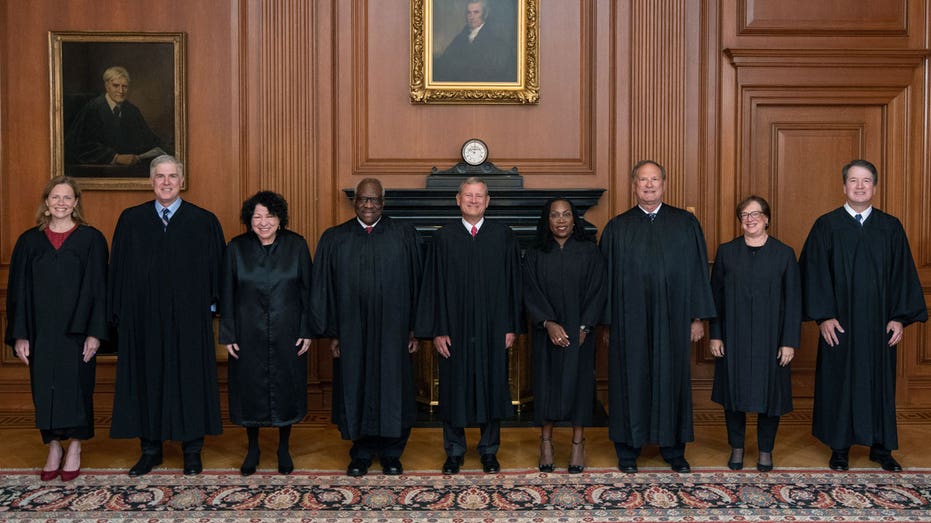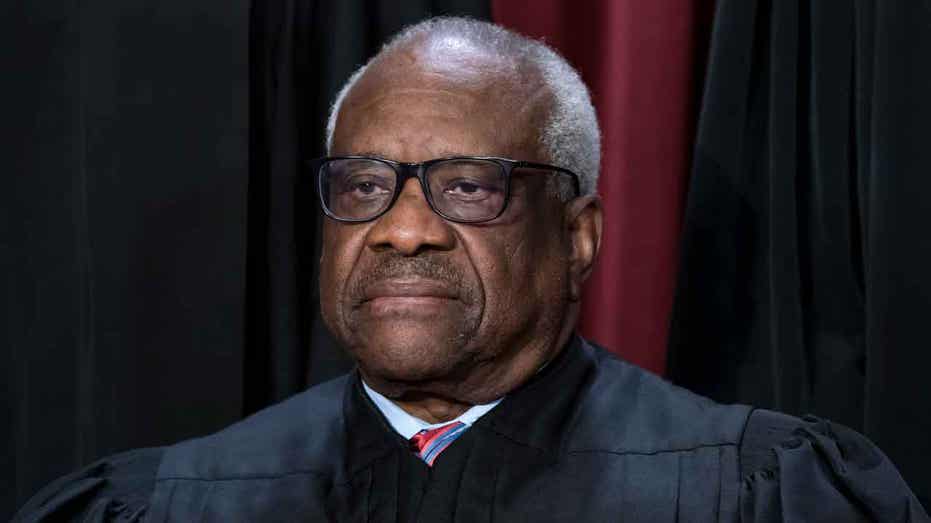Supreme Court gives whistleblowers a win against pharmacies they accuse of Medicare and Medicaid fraud
The 9-0 opinion said a lawsuit alleging Safeway defrauded Medicare and Medicaid in drug reimbursements can move forward
How will the Supreme Court's recent case impact Biden's green agenda?
Former EPA administrator Andrew Wheeler reacts to the Supreme Court lowering the scope of the Clean Waters Act on Kudlow.
The Supreme Court on Thursday said that a lawsuit brought by whistleblowers, who claimed SuperValu Inc. and Safeway Inc. overcharged the Medicare and Medicaid for prescription drugs, can move forward.
In a unanimous decision, the nine justices threw out a lower court's ruling that said the retail pharmacies could not be held liable for fraud under the False Claims Act (FCA).
That statute says that any person who knowingly submits false claims to the government is liable for three times the government's damages, plus penalties.
The court had to answer wether SuperValu and Safeway had the "scienter" – or awareness – required by the FCA, "if they correctly understood that standard and thought that their claims were inaccurate."

Members of the Supreme Court (L-R) Associate Justices Amy Coney Barrett, Neil M. Gorsuch, Sonia Sotomayor, and Clarence Thomas, Chief Justice John G. Roberts, Jr., and Associate Justices Ketanji Brown Jackson, Samuel A. Alito, Jr., Elena Kagan, and B (Collection of the Supreme Court of the United States via Getty Images / Getty Images)
"We hold that the answer is yes: What matters for an FCA case is whether the defendant knew the claim was false. Thus, if respondents correctly interpreted the relevant phrase and believed their claims were false, then they could have known their claims were false," the opinion stated.
Justice Clarence Thomas, who authored the majority opinion, sent the matter back to the Seventh Circuit to proceed consistent with the high court's opinion.

Associate Justice Clarence Thomas (AP Photo/J. Scott Applewhite, File / Associated Press)
The whistleblowers who filed the suit said that the pharmacies of the grocery chains started selling generic drugs at discounted prices to compete with other retailers, like Walmart. In order to get reimbursed by Medicare and Medicaid, pharmacies need to report "usual and customary" prices for the drugs to the government.
SPOTIFY CEO QUESTION ABOUT ALIENS PROMPTS SUPREME COURT CALLBACK FROM ELON MUSK: ‘WHAT IS A WOMAN?’
The whistleblowers contend that the discounted prices were actually the companies’ "usual and customary" prices—and that, rather than submitting those lower prices for reimbursement, the stores instead reported their higher, non-discounted prices.

The Supreme Court is seen at sundown. (AP Photo/J. Scott Applewhite, File / AP Newsroom)
CLICK HERE TO READ MORE FROM FOX BUSINESS
"For example, petitioners have presented evidence that Safeway charged just $10 for 94% of its cash sales for a 90-day supply of a cholesterol drug between 2008 and 2012. Yet Safeway apparently reported prices as high as $108 as 'usual and customary' during that time. And petitioners presented evidence that, at least at some times and for some drugs, SuperValu made more than 80% of its cash sales for prices less than what it disclosed as its ‘usual and customary’ price," the opinion said. "To be sure, the phrase ‘usual and customary’" on its face appears somewhat open to interpretation. But petitioners contend that respondents were informed that their lower, discounted prices were their 'usual and customary' prices, believed their discounted prices were their ‘usual and customary’ prices, and tried to hide their discounted prices from regulators and contractors."




















